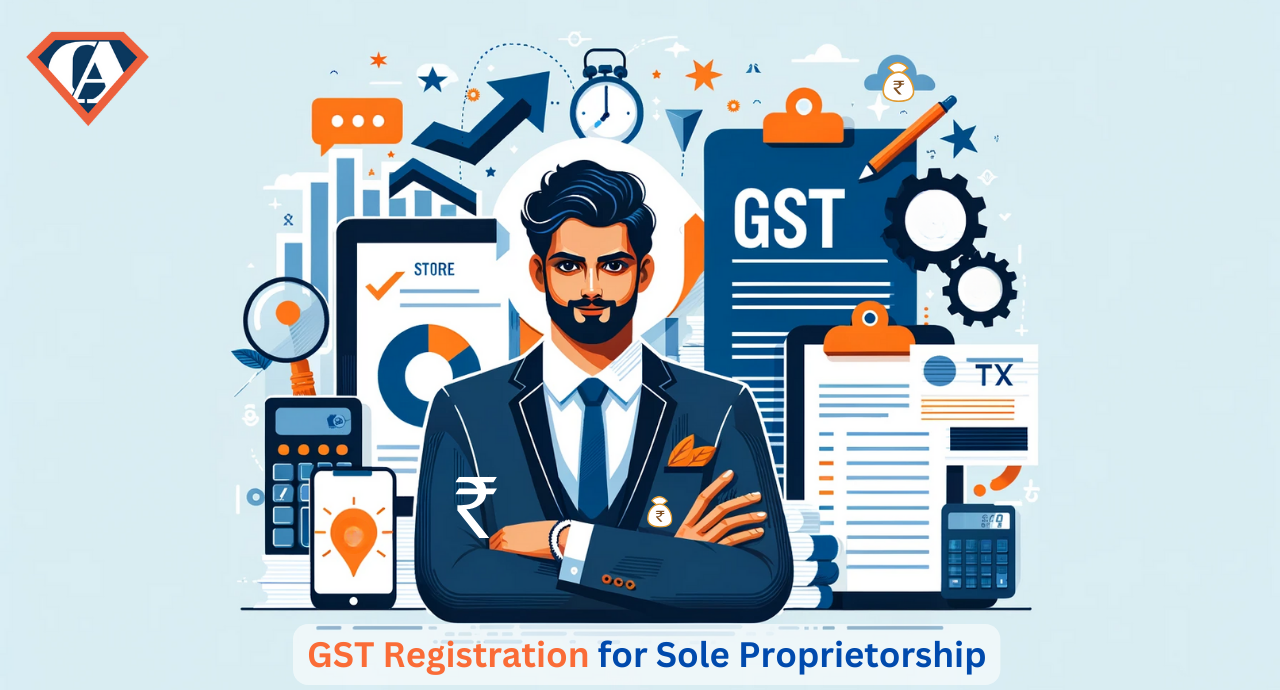Why CFO Account & Services is the Preferred Choice for GST Registration in Singapore
Why CFO Account & Services is the Preferred Choice for GST Registration in Singapore
Blog Article
Navigating the Complexities of GST Registration: A Comprehensive Overview for Entrepreneur
Navigating the complexities of GST enrollment can be a daunting job for lots of company owners, as it includes a myriad of regulations, laws, and refines that should be abided by. With the ever-evolving landscape of tax obligation regulations, making certain conformity and comprehending the intricacies of GST enrollment is vital for the seamless procedure of any type of business. From establishing eligibility and collecting the needed documentation to maximizing operations for optimal effectiveness, this detailed overview aims to offer company owner with the knowledge and devices needed to navigate the intricacies of GST registration efficiently.
Eligibility for GST Registration
Company owners need to satisfy certain standards to establish their eligibility for GST registration. In general, companies with an annual turnover surpassing a certain threshold are required to register for Goods and Services Tax (GST)
Furthermore, companies that are registered under any type of previous tax program, such as barrel or solution tax obligation, are typically required to transition to GST registration. Understanding these criteria is critical for service proprietors to guarantee conformity with the regulation and prevent any type of penalties or lawful concerns. It is advisable for business owners to talk to tax obligation experts or legal advisors to assess their qualification for GST enrollment properly. By adhering to the required criteria, businesses can efficiently browse the complexities of GST enrollment and operate legally within the tax obligation structure.
Documents Needed for Registration
To finish the GST registration procedure, businesses require to gather and send an extensive collection of papers. The key papers required for GST enrollment generally include evidence of organization enrollment or unification such as the Certificate of Consolidation, collaboration act, or any type of various other enrollment certification. Furthermore, businesses need to provide identification and address evidence of the promoters or partners, which can be in the type of Aadhar card, FRYING PAN driver, card, or key's certificate. Financial documents such as bank declarations, evidence of business like rental arrangement or electrical energy costs, and authorized signatory details are likewise crucial for the enrollment process.
In addition, details records related to the nature of business, such as a listing of goods or services supplied, HSN codes for goods, and SAC codes for services, may be called for - Why choose CFO Account & Services for GST registration in Singapore. It is vital for businesses to guarantee that all documents submitted are accurate, current, and in the suggested layout to stay clear of any kind of delays or problems in the GST registration process
Process of GST Registration
Having actually constructed the requisite documents, services proceed to launch the GST enrollment procedure by involving with the online site assigned for registration. This on the internet portal is the Item and Solutions Tax Obligation Network (GSTN) website, which serves as the key platform for all GST-related tasks in India. Upon accessing the website, organizations are needed to complete the GST registration kind with precise information regarding their business tasks, turnover, and other relevant info.
Once the type is completed and sent on the portal, the GSTN confirms the details supplied by the business. Complying with effective verification, a GST enrollment certificate is released to the company entity.
It is very important for companies to make certain that the details provided during the GST registration procedure is precise and approximately day to stay clear of any potential problems or hold-ups in obtaining the GST registration certificate.
Recognizing GST Compliance

Companies require to be aware of the different GST conformity demands based on their turnover, nature of products or services, and the states in which they operate. It is important to remain upgraded on any kind of changes in GST regulations and policies to avoid any kind of non-compliance issues.
Non-compliance with GST laws can cause large penalties, charges, and even lawful consequences. Businesses should invest time and sources in informing themselves and their staff on GST compliance. Seeking professional support from tax experts or consultants can also assist in browsing the complexities of GST conformity and guaranteeing that organizations operate within the lawful structure.

Tips for Optimizing Company Procedures
For enhanced performance and performance in organization procedures, critical planning and structured processes are necessary components. One suggestion for enhancing business operations is to check that utilize technology efficiently.
An additional important element is prioritizing jobs based upon their significance and target dates. By developing a clear hierarchy of tasks and establishing practical timelines, businesses can make certain that essential activities are completed in a timely manner. In addition, promoting a society of open communication and collaboration among team members can bring about increased effectiveness and technology.

Final Thought
To conclude, browsing the intricacies of GST enrollment requires a clear understanding of eligibility requirements, required documents, registration procedures, and conformity requirements. By adhering to these guidelines and maximizing service operations, local business owner can make visit site certain smooth procedures and conformity with the GST policies. It is vital for organizations to stay enlightened and updated on GST laws to stay clear of any type of fines or legal concerns.
The crucial records needed for GST enrollment usually consist of evidence of organization registration or unification such as the Certification of Incorporation, collaboration deed, or any other registration certification.Having actually put together the requisite documents, companies proceed to launch the GST registration procedure by engaging with the online portal click this link marked for enrollment. Upon accessing the site, companies are needed to fill up out the GST registration form with precise information concerning their business tasks, turn over, and other relevant info.
In order to maintain adherence to GST guidelines and avoid charges, companies have to prioritize comprehending GST compliance. By adhering to these guidelines and maximizing service procedures, service proprietors can ensure smooth procedures and compliance with the GST policies.
Report this page